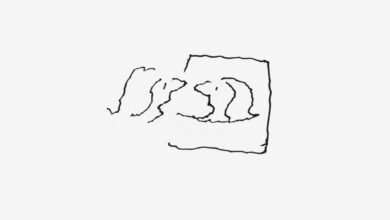Jerome Kagan, who tied temperament to biology, dies at the age of 92

Prof. Jerome Kagan, a Harvard psychologist whose research on temperament found that shy infants often grow into anxious and anxious adults because of their biological nature and the way they were cared for, died on May 10 in Chapel Hill , NC 92.
His daughter, Jane Kagan, said he visited her for several months in North Carolina, where he had planned to move from his home in Belmont, Massachusetts, outside of Boston.
Prof. Daniel Gilbert, another Harvard psychologist and author, described Professor Kagan in an email as "one of the most influential psychologists of the 20th century".
"His research was not only original and groundbreaking," he added, "it was forward-looking, pointing to the impending merging of psychology and biology to connect behavior to the brain."
Professor Kagan argued in more than two dozen books, including the widely acclaimed book The Nature of the Child (1984), that some children were genetically wired to worry and that they turned out to be more resilient than they expected one phase from passed maturity to another. He also argued that the specifics of parenting are often not as critical to a child's future as parents think, although experience could alter the child's natural tendencies to be shy or exuberant.
His conclusions that some children may be born predisposed to certain temperaments may have been a relief to the many parents of baby boomers who followed Dr. Benjamin Spock strictly followed, but raised a generation of rebellious teenagers in the 1960s.
Professor Kagan and his coworkers, including Howard A. Moss and Nancy C. Snidman, pioneered the reintroduction of physiology as a determinant of psychological traits that could be measured in the brain.
They derived their conclusions from lengthy studies beginning with the videotaped responses of toddlers and infants as young as 4 months of age to various stimuli – unknown objects, people, and situations – and correlated these responses with their temperament as teenagers and beyond , measured in interviews.
The cautious, those subdued, shy, and hovering around their mothers, or those agitated, flogged, and cried – about 15 percent of the total – tended to become anxious, self-conscious adults. Another 15 percent who were exuberant as infants, hugging every new toy and interviewer, turned into fearless children and teenagers.
Professor Kagan acknowledged that, as an ideological liberal, he originally believed that all individuals would be able to achieve similar goals if they had the same opportunities. "I have been so resilient to giving much influence to biology," he wrote.
But he also concluded that properly implemented educational remedial measures are valuable because a large majority of children, regardless of race or class, apart from the small number with acute brain damage, have the ability to master the intellectual skills schools need as long as students were confident that they could succeed.
Professor Kagan reassured women who worked outside the home that daycare infants were little different from those at home with their mothers in terms of attachment, separation, cognitive function, and language.
His "The Nature of the Child" was celebrated because Professor Kagan, as the psychologist and writer Daniel Goleman wrote in the New York Times Book Review, "was one of the rare scholars who also mastered the art of the essayist."
Jerome Kagan, a grandson of immigrants from Eastern Europe, was born in Newark on February 25, 1929 to Joseph and Myrtle (Liebermann) Kagan, who ran a shoe store in Rahway, New Jersey.
"I remember being a scared kid," he stammered during his first two years in elementary school, recalling in an oral history interview with the Society for Research in Child Development in 1993.
In those days, parents and psychologists understood the source of many fears to be experiential. That was fascinating for him.
"In the 1940s and 1950s, many citizens and social scientists believed that the main cause, if not the only cause, of the problems plaguing our species were childhood experiences," he told the Harvard Gazette in 2010.
"It followed," he added, "that anyone who discovered the specific experiences that led to a mental illness, crime, or failure at school would be a hero doing God's work." Given this zeitgeist, who would not have the idea of becoming a child psychologist? "
In 1950 he graduated from Rutgers University with a bachelor's degree in biology and psychology and received his PhD in psychology from Yale in 1954, where he was hired by Prof. Frank A. Beach, a prominent psychologist, to study.
He briefly taught at Ohio State, was drafted into the army, and did research at the West Point Military Hospital. He then joined the Fels Research Institute in Yellow Springs, Ohio, where his and Dr. Moss' work led to a book on child development: "Birth to Maturity" (1962).
He accepted an offer from Harvard to help set up his first human development program, and was appointed professor of psychology there in 1964. Until his retirement in 2005, he stayed at Harvard for one year of field research in Guatemala.
In 1963, Professor Kagan was awarded the Hofheimer Prize of the American Psychiatric Association. In 1995 he received the G. Stanley Hall Award from the American Psychological Association.
His other books include "The Child's Growth: Reflections on Human Development" (1978), "Galen's Prophecy: Temperament in Human Nature" (1994), and "A Trio of Aspirations: Mysteries in Human Development" (2021) .
In addition to his daughter Jane, a granddaughter and great-grandson survive. His wife, Cele (Katzman) Kagan, whom he married in 1951, died in 2020.
What inhibitions Professor Kagan had as a fearful child with a stutter, he apparently exceeded them.
"Every meeting with Jerry started with" I just learned something amazing! "After that, he would prove he did it," said Harvard Professor Gilbert. "He grabbed your hand and shoulder and pulled you towards him, and he didn't let go of anything until you agreed that this new fact, idea, or discovery was actually the most amazing thing you've ever thought about.
"And then he would say," So what have you been learning lately? "And expect you to blind him in return."



